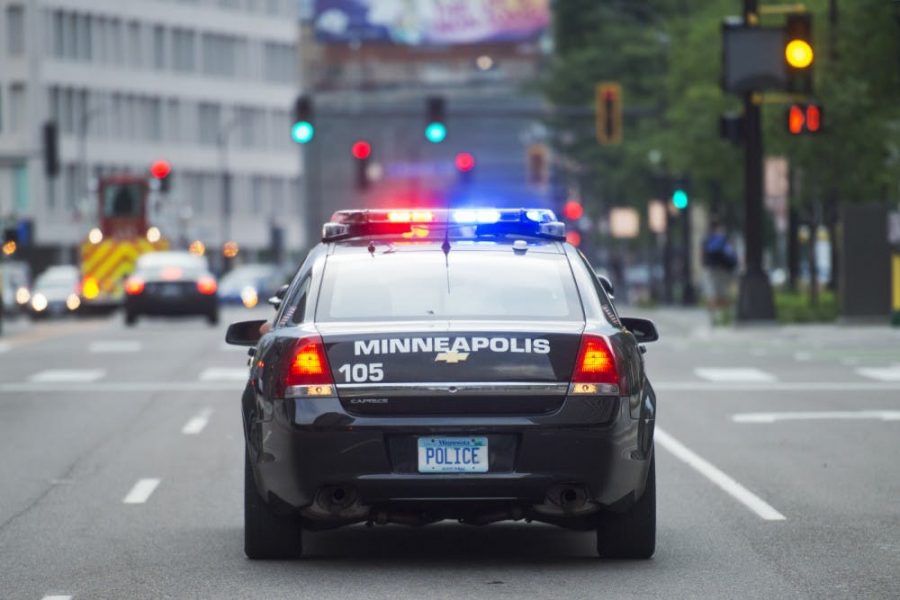Many activists remain concerned about the future of the Minneapolis Police Department (MPD) after the City Council approved an agreement to reform policing on March 31.
Minneapolis’ settlement with the Minnesota Department of Human Rights (MDHR) comes a year after the MDHR published a report detailing evidence of MPD misconduct and racial discrimination over the previous decade.
Minneapolis agreed to negotiate an agreement to bring sweeping changes to many of MPD’s policies after the report was published.
The court-enforceable agreement, otherwise known as a consent decree, includes non-discriminatory and crisis intervention police training, monthly data collection and a requirement for officers to intervene against officer misconduct.
Additionally, MPD will require officers to de-escalate interactions and prevent searches on the bases of smelling marijuana or mechanical issues with vehicles such as expired registration tabs or a broken mirror.
“Following the approval of this agreement, the city’s overarching goal will not be limited to compliance or words on a page,” Mayor Jacob Frey said in a statement. “Our overriding goal will be building a better, more just approach to policing and community safety in Minneapolis.”
Although the agreement is “a step in the right direction,” according to Black Lives Matter (BLM) Minnesota Founder Trahern Crews, it does not go far enough to include community voices in finding solutions to police brutality.
“I’m still concerned that [the agreement] doesn’t have enough teeth,” Crews said. “It does put people on notice that there is the will to do something, but not what to do.”
Crews said while some impacted families and community members may have been included in negotiations, the city did not provide many leading activists and organizations, including BLM, an opportunity to provide recommendations on how to hold police accountable.
MDHR conducted community engagement sessions with hundreds of Minneapolis residents, nearly half of whom were people of color, according to a report from the Minnesota Justice Research Center.
The report listed three community recommendations for MPD to address race-based policing: change its practices to shift away from a culture of violence, prioritize reciprocal relationships and institute more and better accountability.
Communities United Against Police Brutality (CUAPB) was one of the organizations to provide input for the MDHR’s agreement, according to President Michelle Gross. Despite positive reforms being included in the agreement, Minneapolis has not proven the changes will be enforced, Gross said.
“These things that are in the consent decree are things that the city could have been doing on their own all along,” Gross said. “They have never had the political will, and consequently, I don’t trust that they would have it now.”
Policy changes such as prohibiting the smell of marijuana as a pretextual basis for police searches provides relief for many, Gross said. However, no document can change police culture without leaders committed to reform Gross added.
Gross said CUAPB is working to hold a hearing where community members who were not involved in negotiations can raise issues to be added on to the agreement.
“A court order is only as good as the enforcement of that order,” Gross said. “We’ve got to make sure that this order gets enforced in a way that’s meaningful.”
Other activists agreed that they did not trust city leaders to implement the agreement. In a joint statement, Twin Cities Coalition for Justice 4 Jamar (TCC4J) and Minneapolis for Community Control of Police called for increased community control in holding police accountable.
“The consent decree does not make the police permanently accountable; effectively, it puts them on probation,” the statement read. “In order to have true accountability, the people of Minneapolis need to be steering the process from start to finish.”
Jae Yates is a member of TCC4J, and said the agreement was “performative” in reforming Minneapolis policing.
“It’s always good to increase mechanisms of control in policing, given that historically, they have been allowed to kind of do whatever they want,” Yates said. “I can understand how the consent decree would make some aspects of accountability easier, but it’s hard to see how it would do that in a concrete way.”
Yates said they do not have faith in the consent decree to reform policing because it builds upon existing MPD promises that have historically been broken.
Toshira Garraway Allen, founder of Families Supporting Families Against Police Violence, also said the historical lack of police accountability in Minneapolis led to a lack in community trust.
“Although there’s good and bad in every profession, police officers have a special profession because they’re entrusted with authority over other human beings,” Garraway Allen said. “That is what has been so significant about the pain that’s been caused. They were entrusted with people in our community, and trust has been violated.”
MPD is one of many departments within the city that needs to take accountability for police brutality, Garraway Allen said. However, a consent decree is necessary to ensure Black and brown communities are treated fairly and prevent MPD from abusing its authority.
“It’s very necessary that it’s enforced to possibly save somebody’s life, save someone else’s family from being traumatized and save our community from facing another outcry for help,” Garraway Allen said.








